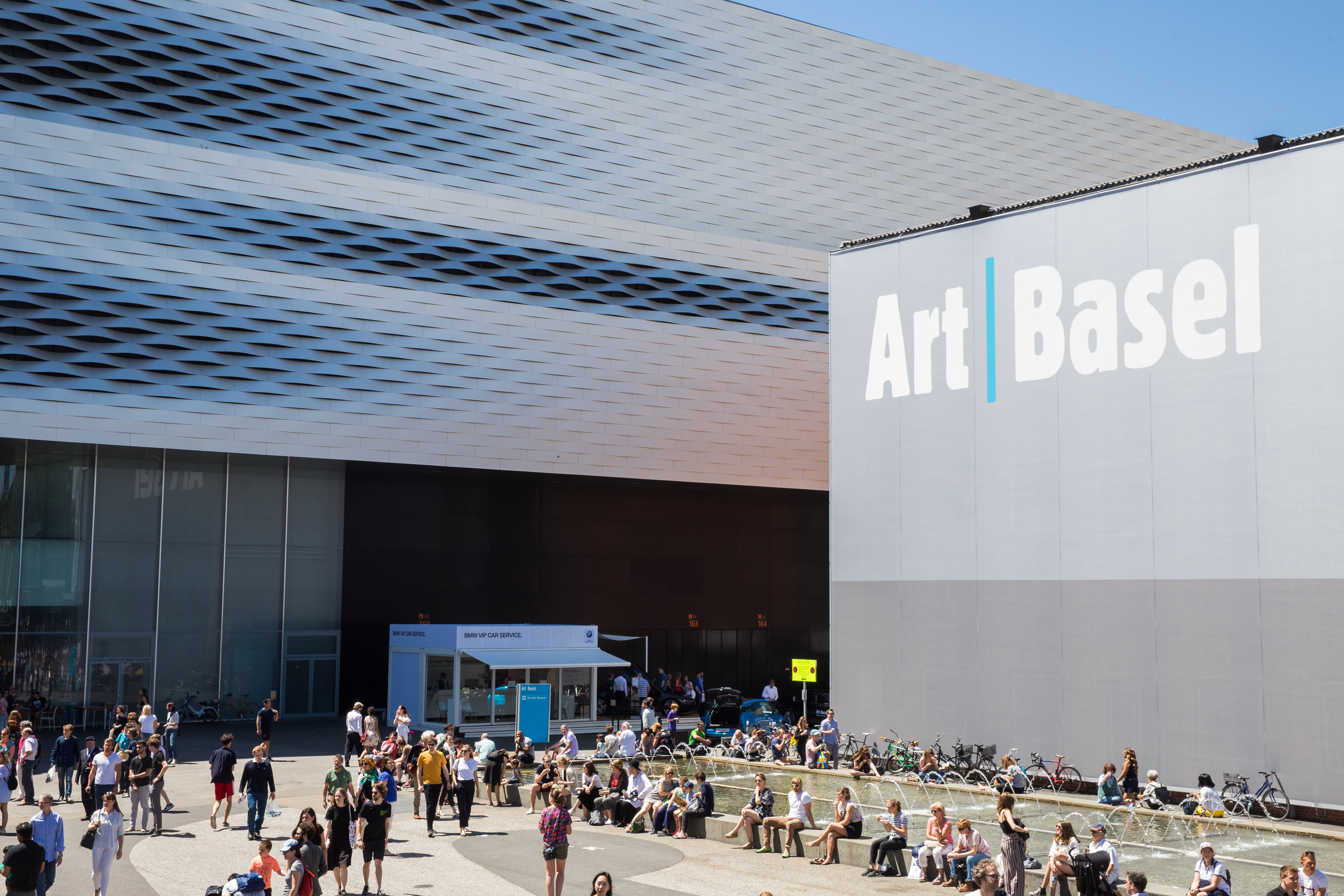
Art Basel is making a big investment to address dealers’ mounting concerns about the Delta variant’s impact on its flagship fair, which is due to open its doors in just two weeks.
In a letter sent to exhibitors Monday and reviewed by Artnet News, Art Basel global director Marc Spiegler and head of European business and management Andreas Bicker announced that the fair has committed CHF 1.5 million ($1.6 million) to a “onetime solidarity fund” designed to mitigate the financial risk of participation. Every gallery will have the option to benefit from the fund if they choose to do so.
The novel initiative aims to soften the blow absorbed by dealers whose sales fall short of expectations in a uniquely challenging, uniquely volatile moment in the art market. According to Art Basel’s calculations, if all 272 confirmed exhibitors were to opt into the solidarity fund, each would receive an additional 10 percent reduction on their square-meter booth rate. (That would bring the total decrease provided to exhibitors to 20 percent; they received an initial 10 percent reduction after committing to the fair in the spring.)
“The reality is that we fully expect that some galleries will do very well, some will break even, and that others may lose money,” the letter reads in part. “We hope you agree with us that our major concern should be for this latter group—those who don’t cover their costs.”
Apart from the solidarity fund, the letter also communicated another new financial cushion: Art Basel will cover any additional costs incurred for hotel stays and travel rebooking should gallery staff test positive for COVID-19 during the run of the fair.
This measure comes in response to exhibitors’ concern that Swiss health authorities would require anyone testing positive to quarantine in Switzerland for 10 days, a potentially costly outcome for dealers given the infamously high prices of lodging in Basel (to say nothing of rebooking international flights at the 11th hour). The fair previously recommended that galleries obtain travel insurance to offset the risk of staff contracting COVID, but the late-breaking offer acknowledges that some dealers lack such supplementary coverage and may not be able to acquire it at this stage.
In an interview with Artnet News, Spiegler called the new measures a “proactive solution in the face of unexpected developments.”
Installation view of Peres Projects at Art Basel 2019. Courtesy Art Basel.
The solidarity fund—the larger and more universal of the two benefits—is designed to give agency to each exhibitor in a market that has shown selective strength throughout the pandemic.
“We could put together a complicated audit system and ask people to open their books, as some governments have done for various COVID relief programs, but we’ve chosen instead to let galleries decide for themselves if they need the reduction,” Spiegler said.
“I’d like to think that the increased collegiality and cooperation that we’ve seen in the pandemic will lead to galleries being willing to pass that reduction on to their colleagues who need it.”
The solidarity fund’s CHF 1.5 million total is fixed regardless of the number of dealers who choose to accept a share, meaning that the amount each gallery receives will rise with every dealer who waives their right to a payout. (Nevertheless, smaller exhibitors are also poised to make up any cost deficits faster based on the sliding scale Art Basel implemented starting with the 2019 edition of its marquee fair; since that time, dealers renting larger stands have paid a higher square-meter rate than those renting smaller stands.)
Exhibitors must decide to opt in or out of the fund in the roughly two weeks between the end of the fair and the date Art Basel invoices for the balance owed for their booths. The solidarity fund will be managed by an independent auditor. Art Basel will keep all information about participation in the fund private, so the public will only know if a given gallery opted in or out if said gallery voluntarily discloses its decision.
The additional offerings from Art Basel come as dealers, collectors, and other art professionals are voicing growing anxiety about the spread of the Delta variant and the increasingly byzantine testing rules and travel restrictions that have accompanied it. After Switzerland announced that the country would not recognize AstraZeneca for entry to large-scale events such as Art Basel, the fair said Friday that it would foot the bill for the PCR test required for non-E.U./EFTA exhibitors who had received that vaccine. A single negative PCR result means they will not have to repeat the test.
Of course, the fair’s other job is to ensure that collectors, art advisors, and other patrons actually show up—and these new measures will not do much to ease clients’ concerns. (One art advisor told Artnet News last week that she had received numerous emails from colleagues looking for people to take over their Basel hotel reservations.) In Monday’s letter, fair organizers assured exhibitors that “our VIP teams remain in close contact with individual patrons and institutions in their various countries, pushing for the best turnout possible in the present circumstances.”
Art Basel also relayed that it is continuing discussions with hoteliers in Basel, art shippers, and other third-party suppliers to “similarly support” exhibitors within the current atmosphere of uncertainty. Although these conversations do not yet appear to have resulted in any additional concessions, the fast-moving conditions on the ground will warrant monitoring all the way up to the fair’s September 21 VIP opening, and perhaps throughout its run.